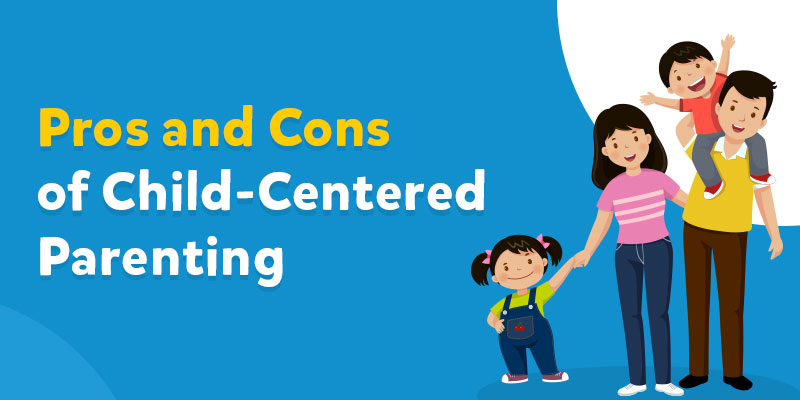
“Everything depends on upbringing.”
― Leo Tolstoy, War and Peace
All parents will agree that their children are an important and integral part of their lives. While some may know how to maintain a sense of balance in their parenting strategies, others are likely to put their children’s needs first almost all the time, often at the expense of their own health or their child’s preparedness for the world outside their home. Most parents are child-centric in some way or another. So in today’s article, we will discuss what it means to be a child-centered parent.
Things every parent should know about child-centered parenting
The term ‘child-centered’ is often used in child development. The SAGE Encyclopedia of Marriage, Family, and Couples Counselling mentions a few key pointers on child-centric parenting. They are as follows:
- During infancy, the child-centered approach to parenting requires parents to understand that when the baby cries, the baby is communicating several needs, be it food, water, or physical contact from the parents. Child-centered parents here are required to put the baby’s perceived needs first and give the baby their undivided attention.
- In situations where the child is mentally or physically hurt, child-centered parents do not trivialise the child’s pain. They validate their child’s emotions and make them feel supported and loved.
- At home, child-centered parents encourage their child to reflect upon their thoughts and opinions on different matters. They create a safe and peaceful environment for their child. They also refrain from imposing their views on the child. They maintain an atmosphere of open communication at all times.
- When it comes to disciplining their child, child-centered parents do not use physical punishments. They also assess and reflect upon their expectations from the child to ensure that their parental requests are age-appropriate. They do not take their child’s challenging or difficult behaviour personally and consider it an opportunity to teach their child some important life lessons.
- Child-centered parents aim to act as role models for their child. They model appropriate behaviour and attitudes and empathise with their child to teach them how to share and interact with others.
Criticisms of child-centered parenting
Like all other parenting styles, there are criticisms for child-centered parenting as well:
- Parents putting their child’s wishes and emotions above all else may not prepare the child appropriately for the real world.
- Children may not be able to handle disappointments when older if they are used to always having their way from a young age. Children need to know that the world is not always fair and things may not always go the way they desire.
- When parents spend so much time and energy in catering to their child, they may not have the time and energy for self-care, which may affect their overall well-being..
- In child-centered parenting, many parents find it tough to set boundaries and limits for their child. Children need to be shown how to work within boundaries and limits, just like in the real world.
Parents need to remember that for things to work in the long run, there must be a balance. Excessive attention to the children’s wishes and demands may not prepare them for the harsh and unfair nature of the real world. Parents need to learn how to show up for their child in a way that makes them better prepared.
What is your take on child-centered parenting? How are you preparing your child for the real world? Do you have any tips that you would like to share with other parents? Let us know in the comments below, or drop a mail at storyweavers@byjus.com.
Reference:
- Carlson, J., & Dermer, S. B. (2016). The SAGE Encyclopedia of Marriage, Family, and Couples Counselling. SAGE Publications, 1-4. https://www.google.co.in/books/edition/The_SAGE_Encyclopedia_of_Marriage_Family/rtw0DQAAQBAJ
Comments
Mohammed Kashif Qureshi
October 21, 2021
Good